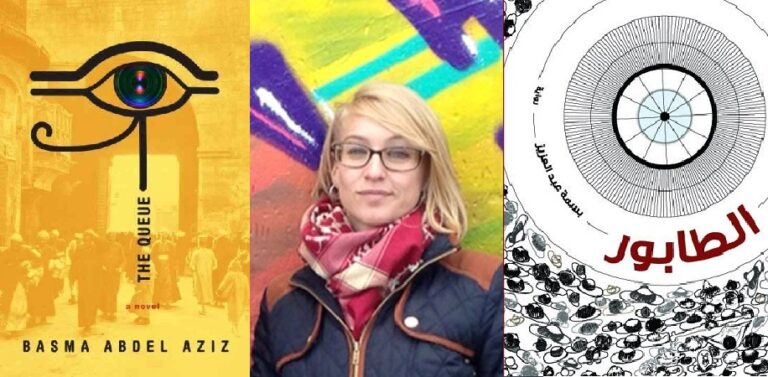Arc Poetry Magazine : An Interview with Rhonda Douglas, Poetry Editor
I originally met Rhonda Douglas back in 1992, when we took the same creative writing (poetry) workshop at the University of Ottawa, conducted by Ottawa writer Mark Frutkin. Since then, she has published Some Days I Think I Know Things: The Cassandra Poems (Signature Editions, 2008) and Welcome to the Circus: Stories (Freehand Books, 2015). A former director of The Tree Reading Series, her writing has been published across Canada and has won awards from The Malahat Review, Arc Poetry Magazine, Prairie Fire and Room Magazine. In 2013, Apt.9 Press in Ottawa also published a chapbook of poems called How to Love a Lonely Man. Rhonda has been on the Editorial Board of Arc Poetry Magazine since 2007. She is currently the Poetry Editor for Arc Poetry Magazine.
Subtitled “Canada’s National Poetry Magazine,” Arc Poetry Magazine is a triannual literary magazine established in 1978, publishing poetry, reviews, essays and visual art, both in print and online. Currently run by an editorial board and a series of editors, it hosts the Archibald Lampman Award, the Diana Brebner Prize, the Poem of the Year Contest, the Confederation Poets Prize and the Critics’ Desk Award. It is based in Ottawa, Canada’s glorious capital city.
Rob Mclennan: How did you first get involved with Arc Poetry Magazine, and in what capacity?
Rhonda Douglas: I think it was about 8 years ago now. Anita Lahey recruited me to head up a newly expanded Board for Arc Poetry Society, the non-profit organization that publishes Arc Poetry Magazine. I chaired the Board for a few years, then served on the Editorial Board for a few more after that. I took a break for a year in there to finish up my short story collection but found I missed discussing poems and poetics so came back. I took over as Poetry Editor from Shane Rhodes in May 2015.
RM: What was the transition like from Editorial Board to Poetry Editor?
RD: Pretty smooth…our Editorial Board reads the shortlisted poems and makes selections for publication so I was well-versed in that process. Now I do more behind the scenes work, reading and vetting the long-listed poems, soliciting contributors, working with the Prose Editor (Ben Ladouceur) on special features, proposing new creative directions for issues or other related initiatives. Arc has a pretty collaborative process so that makes it very satisfying.
RM: What are some of the “related initiatives” you’re currently working on? I know that the journal has expanded significantly over the past decade. How does this affect the role of the Poetry Editor?
RD: We recently increased pay rates for writers we publish, including online – and are doing more online in addition to the print mag. This past year we’ve had a look at the diversity of voices being published in the magazine and discovered we could do better, so we’re making plans around that. I’m excited about an initiative we’re planning in support of Indigenous poets and poetry – that will come in 2017. We’re also looking at a new poetry contest just for emerging poets which will involve some feedback for the longlist – to complement the Diana Brebner Prize, which is just for poets from the Ottawa area. And we’re launching a new programme for donors to the magazine that we’re all excited about because it involves temporary tattoos.
Sorry, you also asked how this affects the role of Poetry Editor? It affects us all really, because we work quite collaboratively. It’s just more work but hey – we can sleep when we’re dead, right?
RM: You mentioned pulling back to focus on completing your short story collection; how does your work with Arc interact with your own writing? Is there a conversation between the process of editing and the process of composing new work?
RD: I’m not sure, to be honest. Mostly it is time that I now don’t have to spend on my own writing. At least that’s the relationship I am most aware of. Probably the only other thing that’s shifted is my attitude toward submissions – I will take rejection less personally now that I have seen how the sausage is made.
RM: Given the collaborative nature of the role, how do you see your tenure as Poetry Editor as being different from those that came before?
RD: Hmm, not something I really have thought much about. I think I would share many of the same concerns with the previous Poetry Editor (Shane Rhodes). I’m very keen on expanding the diversity of voices we publish and led a count to that effect – to better understand who we were actually publishing and where some of gaps were. Shane had a real commitment to publishing indigenous poets, and we’re continuing that but with additional emphasis on other voices as well.
Thematically, we just did an issue on “Art in the End Times,” which is a bit of an obsession of mine.
But I think the enhanced collaboration really is the main difference. We’re doing a lot more of that than we used to and I think it’s very healthy for the magazine.
RM: What is it about the collaborative editorial that you think works so well? I mean, given that, so often, journals are defined by the work of either a single editor or far smaller group.
RD: I don’t think there’s any particular magic to it – turns out other people have good ideas! I think we’re better when there’s more of us involved but in particular for Arc, it helps to have a group of people who are as a group very well read and aware of what’s going on across the country and elsewhere, and it broadens our aesthetic as well. Other people routinely appreciate work I don’t and vice-versa.
We’re doing a new feature that combines poetry and prose (set of poems by one poet, then an interview and essay on the poet’s body of work) – that was my idea initially, and then Ben Ladouceur (Prose Editor) has been working on the first of these. (With Jan Zwicky, for our Winter 2017 issue.) Others join in during Editorial Meetings, contributing new ideas. (The full Board list is here: http://arcpoetry.ca/about/)
I think the collaborative stuff is also more fun, no?
RM: How do you feel Arc fits into the Canadian landscape of literary journals? How do you feel the current incarnation compares to the length of its history?
RD: We have referred to ourselves over the years as “Canada’s National Poetry Journal,” which isn’t to slag other journals – we’re aware that other journals have readers cross-country – but to remind ourselves that we’re concerned with fostering a conversation about contemporary Canadian poetry. That has informed a deepening of our reviews and prose work in recent years, including posting more of that online for social media sharing (where the conversations often happen these days.)
We’re still working with a format for the mag from a re-design led by Anita Lahey and it’s working for us still, I think. In particular, the art feature has really improved considerably. Kevin Matthews leads on that, as well as on new Spoken Word features we’re continuing online.
I think we’re better than we’ve ever been in terms of the work (poetry, prose, art) in the mag and our relevance. But then I’m in pub drinking a pint and I would think that, wouldn’t I?
RM: What other journals, Canadian or otherwise, do you currently see Arc in conversation with? And what do you see Arc doing differently or more effectively than other Canadian literary/poetry journals?
RD: I think of the conversation as happening between poets, as they read the poems, essays and reviews in the magazine and talk about them with other poets. In terms of magazines, though, the other major Canadian mags that are poetry only are Vallum and CV2, with Poetry Is Dead (www.poetryisdead.ca) probably heading the online poetry mags. We also consider The Fiddlehead, The New Quarterly and The Malahat Review as compañeros…among others.
RM: A few years back, Arc introduced the “Arc Annual,” appearing in the summer, between the regular spring and fall issues. What was the original mandate of the “Annual,” and how did it differ from the two “regular” issues? At what point did the “Annual” simply turn into the “Summer” issue and why?
RD: Yes, that was the addition of our third issue. It isn’t the summer issue, actually – if you’re going by seasons then it comes out in autumn, between the summer and winter issues. When we first started it we had to be sure we could afford to keep it going, so now it has been integrated into our regular schedule.
What distinguishes that issue is that it’s the only time of the year we send out a themed call for submissions. The theme of the 2016 edition (on newsstands now) was “Art in the End Times.”
RM: What do you feel Arc can accomplish via the themed issues that can’t be incorporated into the regular issues, and vice versa?
RD: In the themed issue we’re able to tie together the poetry, prose and even reviews in a way we typically can’t when the poetry is coming to us over the transom, supplemented by solicitations. That’s the whole idea behind the Annual themed issue. We also tie in the visual art feature. And then in the regular (i.e. non-themed) issues, we get to enjoy the happy accidents as poetry-prose-reviews bounce off and resonate off one another in a way that isn’t as planned or orchestrated.
RM: Finally, what is coming up for Arc Poetry Magazine? What projects or schemes are you working on that have yet to see publication? Or, alternately, what might you like to see happen that hasn’t yet?
RD: We’re looking forward to celebrating Canada’s 150th Anniversary in 2017, and will do that with a special issue on Reconciliation and decolonization. That’s also in line with a special piece of work on Reconciliation more broadly that we are still developing. If we can get that off the ground, I’ll be very happy! We’re also looking to do more with so-called emerging voices and are exploring possibilities there. And we’ve started a new regular feature that will combine poetry and prose – a selection of new work plus essay and interview with a significant Canadian poet.


